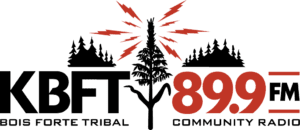NAFOA Corporate Advisory Committee Chair Dawson Her Many Horses, left, and NAFOA Board President Rodney Butler, Chairman of the Mashantucket Pequot Tribal Nation, joined the Gila River Indian Community gathering last week, where President Joe Biden issued a historic apology for the abuses suffered by Native children in federal Indian boarding schools. Photo courtesy NAFOA
NAFOA looks out for our community — help us grow by forwarding this newsletter: Forward to a Friend
President Biden on Friday issued a formal presidential apology to Native American communities for the atrocities committed against Indigenous children and their families during a 150-year era of forced federal Indian boarding schools. The president chose to speak at the Gila River Indian Community in Arizona, although he apologized to all tribal nations for their generations of suffering.
“After 150 years, the United States government eventually stopped the program,” the president said. “But the federal government has never, never formally apologized for what happened — until today. I formally apologize, as president of the United States of America, for what we did. I formally apologize. That’s long overdue.”
Source: CBS News
Continue Reading
Indianz.Com Video: Secretary Deb Haaland at Gila River Indian Community
“This was a life changing experience and has helped me gain the confidence to continue to lead and forge the path to community investment and economic development.”
– Chairman Andrea Martinez, Walker River Paiute Tribe
Elevate your leadership skills and make a lasting impact on your community through the Leading People and Investing to Build Sustainable Communities Program at Harvard Business School, in partnership with Harvard Business School Executive Education, NAFOA, and AFOA Canada.
This program equips Native finance professionals and tribal leaders with the tools to build high-performing, innovative communities.
Upcoming Program Dates: March 24-28, 2025
Deadline to apply: November 11, 2024, at 11:59 PM Hawaiian Standard Time.
Limited scholarships are available. Early application is highly encouraged.
Your insights on Governmental Accounting Standards Board (GASB) guidance are needed. In advance of the upcoming Governmental Accounting Standards Advisory Council (GASAC) meeting, NAFOA invites your input for presentation to the Council.
The GASAC meeting agenda includes opportunities for Council members to highlight any practical issues that may warrant the Board’s attention. GASB’s ability to address emerging accounting and financial reporting concerns depends, in part, on input from the field, and GASAC members play a critical role in identifying these issues.
Please collaborate with your tribes and organizations, as relevant, to respond by Wednesday, November 6. We value your feedback and its role in shaping effective standards for the benefit of all communities. For additional questions, contact GASAC member Hattie Mitchell, REDW Director of Client Advisory and Accounting Services, at Hattie.Mitchell@redw.com.
November 18, 19, and 20, 2024, 1:00 – 4:00 p.m. ET – Treasury is hosting Tribal consultations on an NPRM to implement section 139E of the Internal Revenue Code, created by the Tribal General Welfare Exclusion Act of 2014 (Act).
These rules incorporate a historic level of pre-Tribal consultation and Treasury Tribal Advisory Committee feedback and support Tribal self-determination and self-governance in the implementation of the Act. To learn more about the proposed rule, please see Treasury’s Press Release, the Tribal Consultation and Federal Feedback Summary, Dear Tribal Leader Letter, and Fact Sheet.
Treasury is accepting written comments received by December 17, 2024, 11:59 p.m. Alaska Time. Please submit written comments at tribal.consult@treasury.gov.
Source: U.S. Department of the Treasury
Register for One or More Consultation Session
Project Managers are responsible for managing a portfolio of Low-Income Housing Tax Credit (LIHTC) clients, ensuring the successful financing and development of affordable housing projects in Tribal communities. Key responsibilities include marketing to potential and repeat customers, developing relationships with state allocating agencies, monitoring the Qualified Allocation Plan (QAP) process, and preparing and submitting funding applications. Funding sources include but are not limited to LIHTC, the Affordable Housing Program, Indian Community Development Block Grant, and Capital Magnet Fund funding programs.
Another key component of the role is to collaborate with investor partners to facilitate the purchase of the tribal developer’s LIHTC allocation. Project Managers lead the closing process between tribal developers, equity investors, attorneys, architects, and other stakeholders so that the project can achieve financial closing and construct quality, affordable housing in Tribal communities. Project Managers work closely with internal teams and external partners on rewarding, fast-paced, and challenging projects with strict deadlines.


